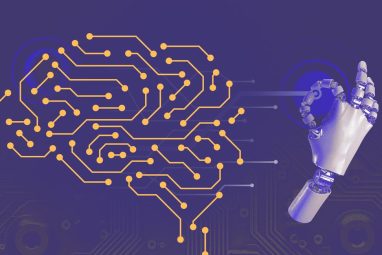Google‑Yale Gemma AI Flags Drug Pairing That Could Aid Cancer Detection
Google CEO Sundar Pichai called it “an exciting milestone for AI in science."
Topics
News
- Few Firms Are Truly AI Ready, Cisco Says
- Training AI Models Is a Bigger Prize Than Building Them, Oracle’s Ellison Says
- Google‑Yale Gemma AI Flags Drug Pairing That Could Aid Cancer Detection
- Instagram Tightens Teen Controls Amid Safety Scrutiny
- Anthropic May Store User Data in India as Local Claude Usage Surges
- Intel Plans Crescent Island User Trials by Second Half of 2026

[Image source: Krishna Prasad/MITSMR Middle East]
Google and Yale researchers said on Thursday a new artificial intelligence tool may help the immune system detect some cancers more easily, potentially opening the door to new treatments.
The discovery came from an AI model developed jointly by Google DeepMind and Yale University, based on Google’s open-source Gemma architecture.
The model looked at how thousands of drugs behave in different cellular environments, then flagged an unusual combination: a cancer drug called silmitasertib worked much better when paired with a small dose of interferon, a common immune-signaling protein.
On their own, neither drug had much effect. But together, they helped cancer cells send out stronger immune signals, a 50% jump, according to the researchers, which could make it easier for the body to find and destroy tumors.
That’s a major step in cancer immunotherapy, which has struggled with so-called “cold” tumors that hide from the immune system.
Google CEO Sundar Pichai called it “an exciting milestone for AI in science,” saying the model didn’t just analyze existing data but came up with a new idea that was later confirmed in lab tests using human cells.
“Our C2S-Scale 27B foundation model, built with Yale and based on Gemma, generated a novel hypothesis about cancer cellular behavior, which scientists experimentally validated in living cells,” Pichai wrote on X, announcing the discovery. “With more preclinical and clinical tests, this discovery may reveal a promising new pathway for developing therapies to fight cancer.”
The underlying model, known as Cell2Sentence-Scale 27B (or C2S-Scale), was built to interpret the behavior of individual cells. It ran a large-scale simulation of more than 4,000 drug compounds across two different immune conditions: one active, the other neutral, and identified compounds that would selectively boost immune response depending on the cellular environment.
Smaller AI models had failed to make these kinds of context-sensitive predictions, but C2S-Scale was able to pinpoint the specific drug pairing that enhanced immune signaling in a meaningful way. The result was validated in human neuroendocrine cell models, confirming the AI’s prediction that the two drugs would work only in combination.
Researchers said the finding suggests large-scale AI tools can go beyond pattern recognition and generate testable scientific ideas, a development that could accelerate the pace of biomedical discovery.
Yale teams are now studying the mechanism behind the immune boost and testing whether the approach could apply to other drug combinations or cancer types.
While the work is still in early stages, the experiment signals how AI could begin to play a more creative role in science.




